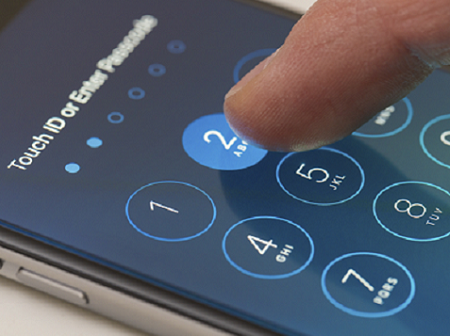Apple, FBI Head Into Court March 22
The FBI's Feb. 16 court order citing the All Writs Act and demanding Apple's cooperation in unlocking an iPhone will go before a judge March 22, after more than a month of global attention and a day after a press event at Apple Headquarters.


iPhone Encryption: 5 Ways It's Changed Over Time
iPhone Encryption: 5 Ways It's Changed Over Time (Click image for larger view and slideshow.)
Apple, the FBI, and US Department of Justice will convene in the federal courtroom of US Magistrate Judge Sheri Pym on Tuesday, March 22, during a hearing that could advance a case that has gained global attention and that has been framed as a far larger issue than the one that began with a Feb. 16 court order for Apple to unlock an iPhone.
During Tuesday's hearing in the US District Court for the Central District of California, Pym will hear arguments about whether the federal government can force Apple to unlock the iPhone used by one of the San Bernardino terrorists, and whether the company should turn over its source code to the FBI.
No ruling is expected when all sides meet at 1 p.m. PDT, but the hearing marks a significant milestone in the case that has rocked the tech and political worlds.
That court order came as a surprise to Apple, which had already been working with law enforcement for months, to uncover data from the iPhone of one of the San Bernardino shooters, Apple CEO Tim Cook told Time in an interview published March 17.
"We found out about it actually from the press, who were being briefed about it in advance of the filing," Cook said during the interview.
Cook immediately posted an open letter on the Apple site explaining Apple's position and stating that the order "has implications far beyond the legal case at hand" and calling for "public discussion."
Discussion has ensued, and been piqued, through both a House Judiciary Committee meeting; a number of back-and-forth briefs filed by the Justice Department, the FBI, the Obama administration, and Apple; and even following an amici brief filed by Google, Facebook, Amazon, and 12 other "friends" of Apple with a stake in the case's outcome.
The tech community, civil rights advocates, and many others will be following the Apple case in court, and specifically two aspects of it.

Are you prepared for a new world of enterprise mobility? Attend the Wireless & Mobility Track at Interop Las Vegas, May 2-6. Register now!
The first will be whether the government's use of the All Writs Act to compel Apple to create new software -- a so-called backdoor that will allow the government to access phones in future situations -- is found to be legal and appropriate. Many have argued that the government's use of the Act is well beyond the founders' original intent.
Second will be whether Apple is made to hand over its source code -- a step the Justice Department has threatened to take, and one that has roused passionate responses, including ones from Apple engineers who say they'd consider leaving their jobs before complying with the order.
Julian Sanchez, a senior fellow at the Cato Institute, a libertarian public policy think tank, has written that it's not only important that Apple win, but that "it matters how it wins."
Were Apple to win based on grounds tied to the mandate to create software, rather than the demand to authenticate it, it could "prove a pyrrhic victory indeed, opening the door for the government to insist on doing things the 'hard way,' and inaugurating an era of government-scripted malware signed to look like genuine updates," Sanchez wrote in a March 17 blog post.
The same day, the American Civil Liberties Union, the Electronic Frontier Foundation, and Access Now released a joint statement, saying they are committed to defending the rights of those whose data will implicated in the government's "shortsighted policy."
"[This] fight is our fight. It is the fight of every person who believes in a future where technology does not come at the cost of privacy or individual security, and where there are reasonable safeguards on government power," according to the joint statement.

About the Author
You May Also Like






